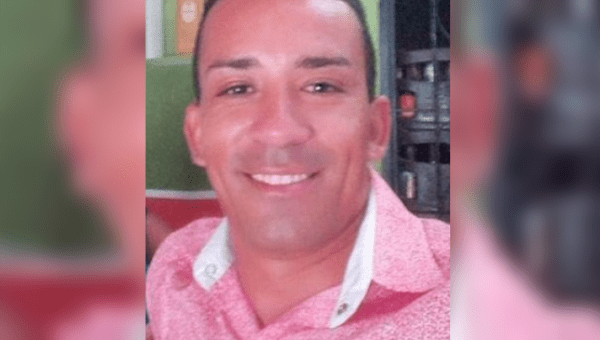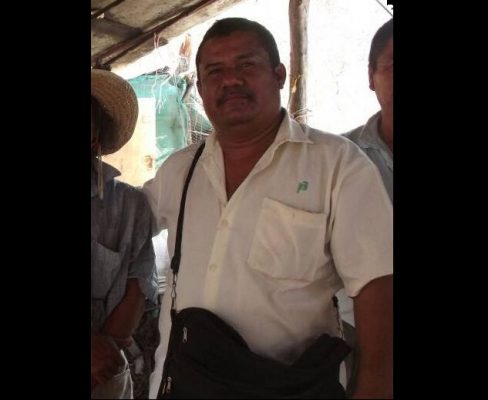
The human rights record of the Philippines came under scrutiny on 8 May 2017 during the 27th session of the Universal Periodic Review (UPR) by the United Nations Human Rights Council (UNHRC) in Geneva, Switzerland. After the initial review of the national report submitted by the Philippines, member states of the UNHRC made their recommendations. In this article Front Line Defenders looks at the critical situation for human rights defenders, (HRDs), in the Philippines.
During the previous UPR of the Philippines in 2012, only four countries had raised concern with regard to the situation of human rights defenders (HRDs) in the Philippines, resulting in five official recommendations. While the Philippines merely acknowledged the recommendation pertaining to cooperation with the UN Special Rapporteur on the situation of human rights defenders, it accepted two concerning the protection of HRDs from extra-judicial killings and enforced disappearances. During the examination, the government committed itself to taking “firm measures to address the problem of extra-judicial killings and enforced disappearances”. Despite those assurances, extra-judicial killings and targeted attacks on HRDs have continued to take place. The government report under current review made no mention of the risks facing HRDs or the measures taken to prevent their targeting, thus demonstrating how little progress has been made in implementing such recommendations over the past five years, and particularly under the new administration.
In contrast, in its 2017 review, eleven states called for the establishment of protection mechanisms for HRDs and recommended that the Philippines “should provide a safe and enabling environment for the work of human rights defenders”. The dire need for the recognition of their positive and legitimate work in defence of human rights was also raised by some member states, highlighting how much the issue of the dangers faced by human rights defenders in the Philippines has gained momentum in recent years.
Prior to the 2017 review, Front Line Defenders submitted stakeholders’ report with recommendations to the government of the Philippines pertaining to the protection of HRDs which called on the government to take effective action to:
-
end and investigate extra-judicial killings;
-
cease judicial harassment;
-
review restrictive laws;
-
recognise the positive and legitimate role human rights defenders play in society.
As of today, extra-judicial killing remains the gravest threat facing human rights defenders. Since the last review, the Philippines has seen a marked deterioration in the rule of law, which has deeply affected the ability of HRDs to carry out their peaceful human rights work. The climate of impunity prevailing in the Philippines, combined with the administration’s encouragement of extra-judicial killings of alleged drug users, as well as President Duterte’s hostile rhetoric about HRDs and civil society members, has resulted in a serious deterioration in the situation for HRDs in the country. There are very real fears that under Duterte’s administration such killings will increase as official encouragement for the killing of those suspected of involvement in the illegal drug trade will have the knock-on effect of creating a situation in which the killing of HRDs is seen as an acceptable state response. The Philippines has already become the most dangerous country in the world in which to be a HRD, outside of the Americas, in terms of number of reported killings.
In a recent letter to the United Nations Special Rapporteur on the situation of human rights defenders, Philippine human rights organisation Karapatan noted that 474 HRDs were killed during the Arroyo presidency (2001-2010), and 139 during the Aquino presidency (2010-2016) while 33 HRDs have already been killed since President Duterte came to power in July 2016. This makes a total of 646 HRDs killed in a 16 year period.
In the first two months of 2017 alone, 15 HRDs working on land and indigenous rights were the victims of extra-judicial killings, none of which have been properly investigated by the authorities to this day. Defenders of economic, social and cultural rights, including land and environmental defenders and defenders from indigenous communities, face significant risks in their attempts to peacefully defend their land or oppose major industrial projects. Most of the HRDs targeted in the recent spate of killings were working on environmental, land or indigenous peoples’ rights.
Despite the high number of states which expressed concern about extra-judicial killings in the so-called ‘war on drugs’ during this week’s UPR, no commitments were made by the Philippines delegation to stop the killings, or to conduct independent investigations to hold perpetrators accountable, let alone to end the extra-judicial killings of HRDs.
Now that the lethal environment facing HRDs in the Philippines has come under international scrutiny, the Duterte administration must put an end to these killings, many of which take place with official sanction and the active participation of members of the security forces. Recommendations made by the UNHRC member states as well as the civil society organisations need to be properly addressed as a matter of urgency. The first step is to immediately cease extra-judicial killings and other gross and systematic violations of human rights committed against HRDs. The Philippines must recognise the important role played by HRDs in creating a more just and equal society. Meanwhile, the international community and human rights organisations must maintain their pressure on the Duterte administration and hold it accountable for its human rights record.
The Philippines is expected to announce whether or not it accepts the recommendations made this week in September 2017, before the 36th regular session of the UNHRC.





